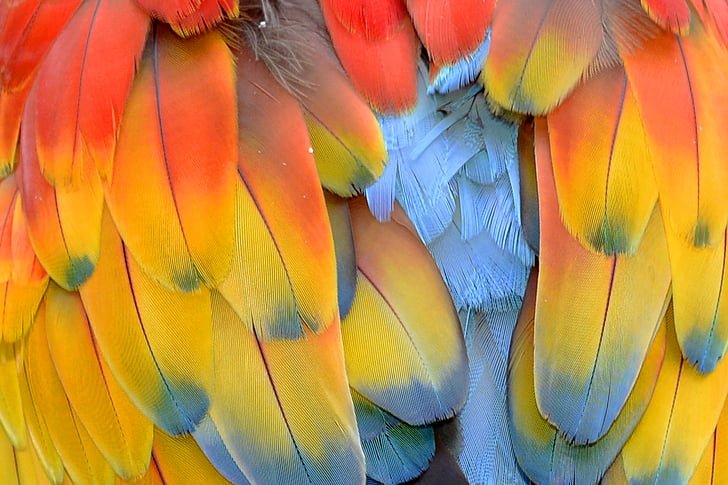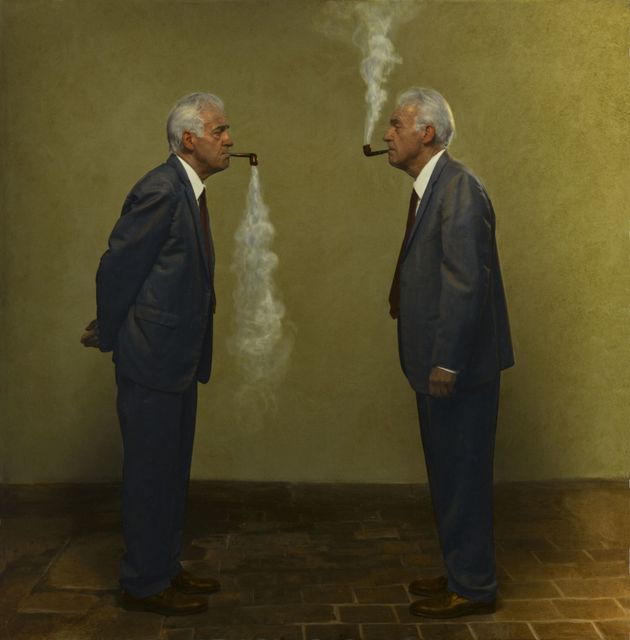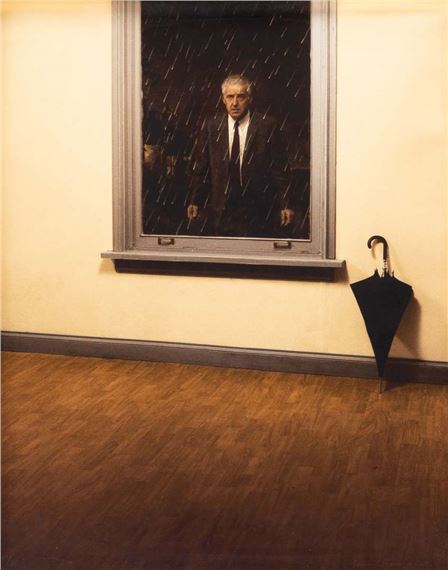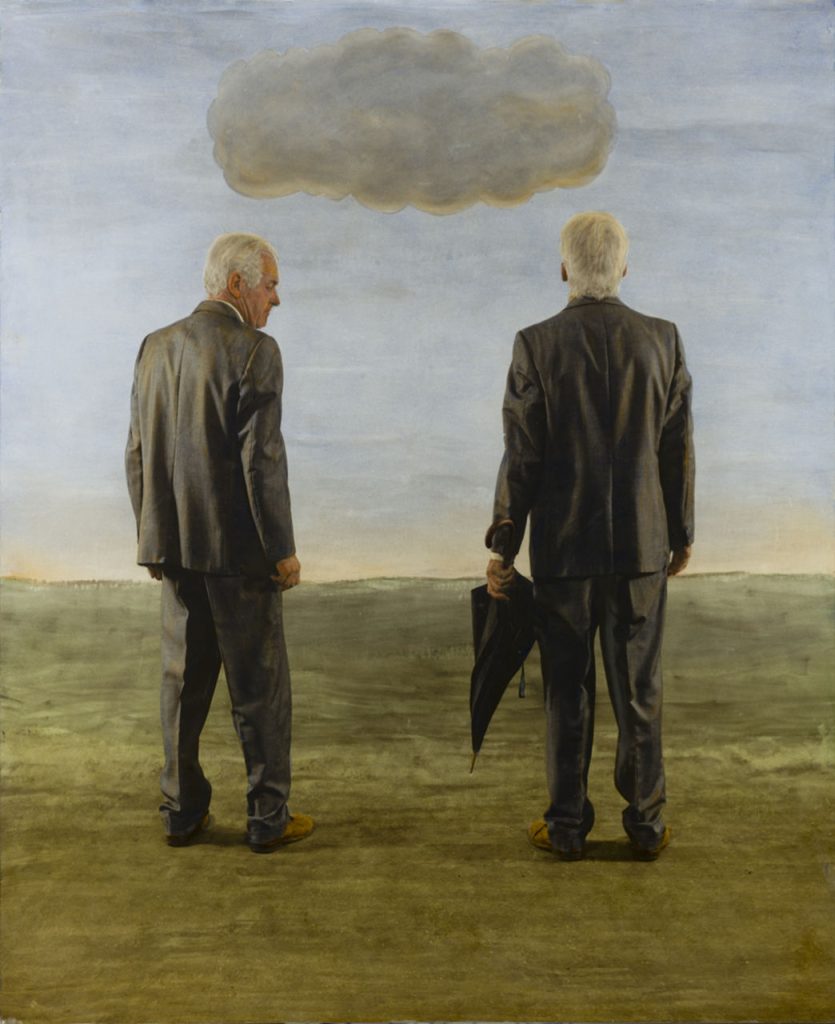
Plumage
For different reasons and in different contexts, whether such judgments are warranted or not, I’ve sometimes been slapped with the label of “Weirdo.” Maybe you have, too?
Our culture tends to romanticize its “eccentrics.” Well, kind of.
It’s probably more accurate to say that we romanticize those rare innovators, entrepreneurs, artists, leaders, or otherwise significant figures whose various “eccentricities” proved useful to society’s desires and causes (at the time).

In the capitalist “West,” at least, we probably only like eccentricity-as-commodity. Otherwise, we’re not actually all that fond of so-called “eccentrics,” unless they can invent a cool product or cleverly market an idea (and make money doing it).
There may be two kinds of “eccentrics”, though I’m not gonna pretend this is a certainty. Call it a hunch I’ve developed after years of observing and getting to know a lot of different kinds of people, some of them oddballs indeed.
Our first sort of “eccentric” is the guy who seems to revel in his own distinctives – he takes a certain kind of pride in them, be they immutable or voluntary.

Not only does he savor his own “otherness”, he may even derive a primary sense of personal value from how “unlike” the “normal people” he is (or, seems). This “Just Be Yourself” eccentric is usually a welcome personality in the hyper-individualist West, as he appears neither afraid to offend nor attract, and this can come off as quite charismatic and powerful. Think: Oscar Wilde, Howard Hughes, Edward Bloom (Big Fish), Lady Gaga, and the kinds of figures they cut.
The second is just as externally bizarre, but with a different internal attitude: the guy who, after painful formative years attempting – perhaps quite poorly – to conform to peers or meet the expectations of authorities, finds he can no longer afford to exhaust his energy “blending in”, and instead decides to burn those calories on other, more productive pursuits than excessive self-consciousness.

Yet, where the Second Eccentric chiefly differs from his more gregarious counterpart is in his private envy of “normal people”; the benefit of the doubt – and anonymity – given to those better equipped to faithfully observe social norms. Consider: Emily Dickinson, Alan Turing, Edward Scissorhands (Edward Scissorhands), or Vincent Van Gogh… folks who accomplished great things, despite society’s puzzlement, hostility, or just plain ignorance of them in their lifetimes.
I have long suspected that these two types of eccentrics are commonly confused, perhaps due to the fact that they are often superficially identical: “weird” clothes or hair, unusual ways of speaking, obscure tastes and niche’ hobbies, alternative lifestyles and fringe ideas.

“Eccentricity” is merely being outside of a circle of “Normalcy”. From the perspective of those within the “circle, all “weirdos” stand outside, making them – by definition – equally eccentric. These Two Types of Eccentrics might share an identical proximity (or lack thereof) in relation to “Normalcy” but it’s not until we get curious about any given individual’s motivations and desires – their genuine personhood – that we find a wrinkle in the logic which assumes both are “outside” the circle for the same reasons, or are “after” the same things.
And what do we tend to assume those who are “different” are after?
Why, attention of course!

Why do we assume this?
I’m not sure. However, my experience in “people-work” (customer service, ministry, artistic collaboration, and social networking) has given me the overwhelming impression that most people desire attention. What’s more: evidently most people do not feel as though they receive a sufficient amount of attention.

And I wonder… just as is the case with things like parenthood, buying brand new cars, and going on tropical vacations, if it’s something most people want, then maybe it’s logical to assume another person wants it, too. “Attention”, at least in our era, is no different.
Since a “distinct” thing is going to attract attention by its very nature, a person behaving in some “distinct” way must surely be aware that they are capable of courting attention. Thus, most folks figure, “They’re only doing that to get attention,” since… well, it’s the only reason most of us would think to do it ourselves, right?

Biology may back this up, in the sense of Darwinian advantage. Nature documentaries depicting exotic birds show us how those with bigger and brighter plumage will merit attention, and therefore – advantage. Big, loud, colorful birds will get laid, and make more big, loud, colorful birds, and thus “win out” over smaller, duller, quieter ones in the race for resources. However, evolutionary theory also points out that not all mutations are advantageous; not all deviations prove useful. In fact, most do not. For every single “eccentricity” that eventually proved advantageous to a species, there are (truly) countless others that brought about a species’ destruction.
Some birds are so big, and loud, and colorful, that they’re more easily hunted and killed.
And even if you’re not all that into science-y things, you can likely be sure … from your very own experience, perhaps … that those who transgress convention, those individuals or groups who are deliberately or inescapably “distinct”, will be rewarded with – or punished by – attention.
This is great news to the First Type of Eccentric, as he’s wont to seek out attention, even to the point of exaggerating his natural distinctives for enhanced visibility; like those birds who stuff colorful scraps of paper or scavenged fabric into their wings to be better seen by potential mates (or rivals).

But to the Second Type of Eccentric who, more often than not, longs for the privacy and social security of which his “strangeness” has deprived him … it seems that to purposefully reinforce one’s non-fabricated quirks is to invite a kind of personal hell. Our culture doesn’t know what to do with this kind of eccentric – not until they prove themselves useful, anyway.
As one “eccentric” searches out spotlights and eyeballs, the other sneaks around for a dark, quite corner. Our culture expects and rewards the first approach, but (eventually) resents both. Why is that?
One may leverage her eccentricities for praise – “Look how special I am!” – while the other does all she practically can to suppress her “uniqueness”, an unwanted characteristic she’s found more likely to result in alienation and misunderstanding than in an abundance of self-esteem and social favor.

The First Type may be energized by puzzled looks, raised eyebrows, pearl-clutching, and “Tsk, tsk”-ing from more conventional folks, even interpreting criticism and disapproval as no more than further confirmation of his own significance. Whereas, the Second Type may yearn to escape into safe obscurity, neither wishing to provoke nor disturb others with his genuine “self.”

One “eccentric” may view her divergence as an asset, the other; a liability.
One glories in his “being different”. The other, feeling shame for his peculiarities, may seek to apologize, or seek justifications, for them.
Yet despite these efforts, if misunderstandings continue, the Second Type may continue to withdraw from society, which often leads to further eccentricity, which creates more misunderstanding… a vicious cycle.

What’s the point of this ramble?
I’m not sure yet… but it probably has something to do with “identity”: what it is, where it comes from, why we humans apparently care so much about it.
I mean, we’re a pretty “identity”-obsessed generation, aren’t we? And, I use the word “generation” in the classical sense, meaning “everyone currently alive today” because: well, sorry Old Timer, but I’m not gonna pick on your “snowflake” kids, as if they invented self-absorption or something. Besides, where do you think they learned it, anyway?

Take this universal human “quest for identity” thing, mix it in with stuff like celebrity, influencers, mass media, professional marketing, “Me-as-product” online life, and cult-of-personality leadership in seemingly all systems and institutions, and you get a society that is engineered by (and increasingly caters to) our most narcissistic tendencies. Therefore, we can expect everyone’s vanity to bloat and for our various “personalities” to decay into mere artifice and pretense, especially as the “eccentrics” among us continue to receive – even compete for – more and more attention, positive or negative.
I do not think most of this is an accident, either. We encourage – even train – each other to pursue a certain amounts of “commodifiable” eccentricity: traits which, in the digital era, are easier to fabricate than ever before…
…and more directly amount to literal dollars and cents.
Up until rather recently, being an “Eccentric” was largely the purview of the elite and luxurious: those who were “different” were few, as it took means, education, and leisure-time (things that not afforded to most people, in most places, at most times) in order to purposely cultivate a “unique” Identity. In other words, it used to be that in order to be “Unique” (in the desirable sense), you had to have money.
Modern media, the industrial revolution, and maybe the Internet, may have changed all of that. These days, it’s more like: to make money, you have to be “Unique”. Enough to, you guessed it: get attention.

Attention is money. Money is a form of value. A distinctive person or group will be someone’s livelihood the minute they become a market demographic to sell products at, or … the product themselves. This is almost cartoonishly the case in the age of the Almighty Algorithm as it sticks its faux-omniscient fingers into every facet of our lives – public and private, sacred and secular, personal and corporate. Now it doesn’t matter if you’re rich or poor, famous or powerful, a “have” or a “have not”: we are all capable of immense amounts of self-obsession.
We’ve proved it, by doing so the minute we were granted the opportunity.
There are probably many consequences to this “Uniqueness” = “Attention” = “Value” dynamic. One, at least, is that we all have plumage to preen, now: whether or not we really want to, or consciously “care.”
No one wants to admit this, but I think it’s worth mentioning. Part of humility is finally admitting how egotistical you are, and I’ve got to say that the “I-don’t-care-what-people-think-of-me”-people may ironically, be some of the most conceited and preening of birds.
However, I suspect that only the First Type of Eccentric, as I’ve described them, enjoys the benefits of the society-wide romanticism and commodification of “individual uniqueness”. The Second Type may be running for the hills… Or, if not, they are fighting the urge to do so every day.
-//-
“Eccentricity” aside, here’s the thing.
I wonder anymore if, in matters of “Identity”, every single one of us, ever might find the real thing we’re after …
…relief, release, satiation, or fulfillment…
…by no longer defining ourselves by what we are not (i.e. “not normal”, “not weird”), but rather, what we are. That is, without pretenses, put-ons, or fearful omissions. The genuine “Self.” That’s what just about all psychology seems to be after, right? Maybe religion, too? The search for “Identity?” Maybe.
After all, aren’t we all a bit “eccentric” anyway? I mean, is it really that weird to be “weird”?
And… is it really that normal to be “normal”?
Maybe Weirdos and Normals alike, (or whatever your flavor of conceit), would do well to learn to get over ourselves a bit? Probably.

Perhaps we can even take it further.
Is it possible to find our “identities” outside of human perception?

Humanists, and maybe some atheists, might say that human perception is all we have. But I doubt the intellectually honest ones among them would argue that human perception is flawless and whole. Everyone can agree that, whether of others or of “the self” or the universe we find our-selves all in, human perception is wildly vulnerable to distortion.
To correct for this, we each bring our own judgments under the authority of some other, higher, Judge – whether we like to call that “Law” or “Science”, “Rational Thought” or “Common Sense”, “Magic” or “Tradition” or “Philosophy”, or even “God”.
So within my own distorted, incomplete, and myopic perceptions, I’m wondering: what if our culture’s most-prized mantra – “Just Be Yourself” – has a lot less to do with “Self” than we think?
I’m gonna go rest my feathers now.
